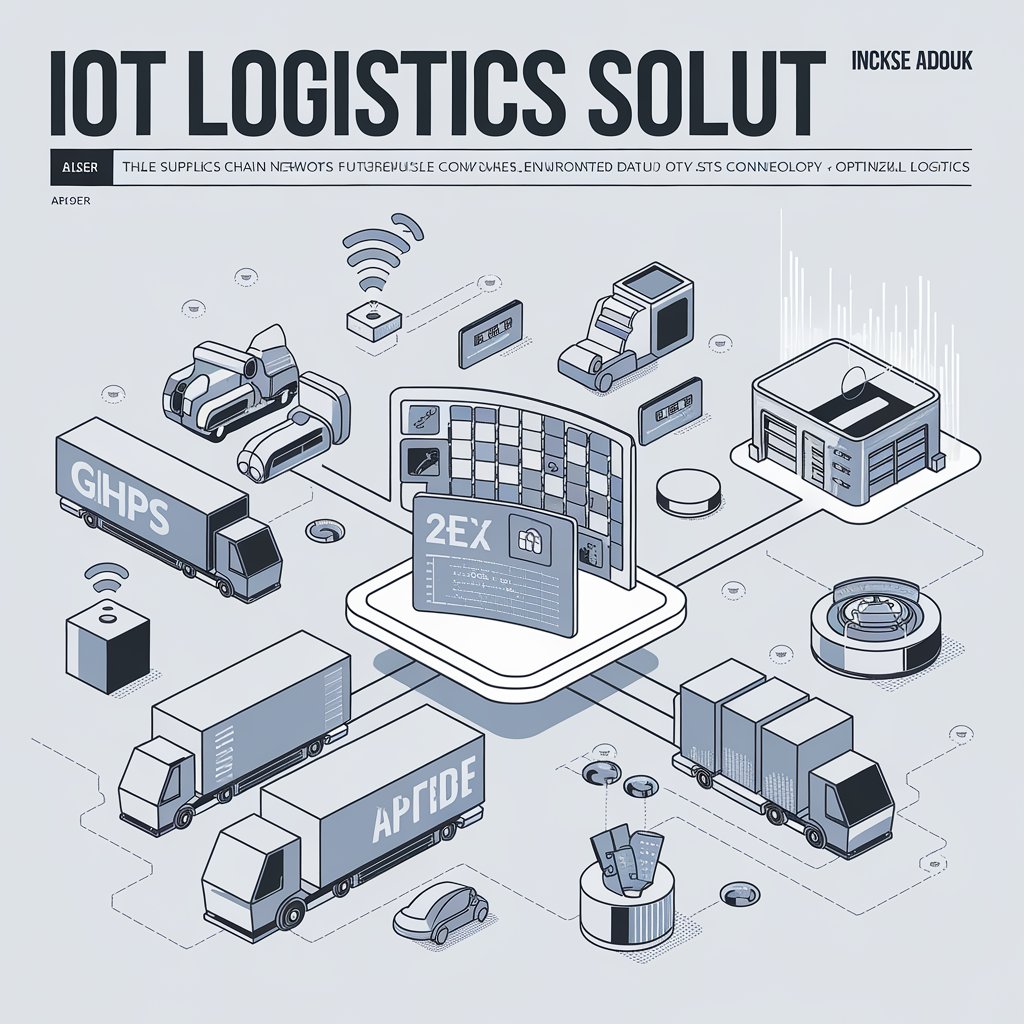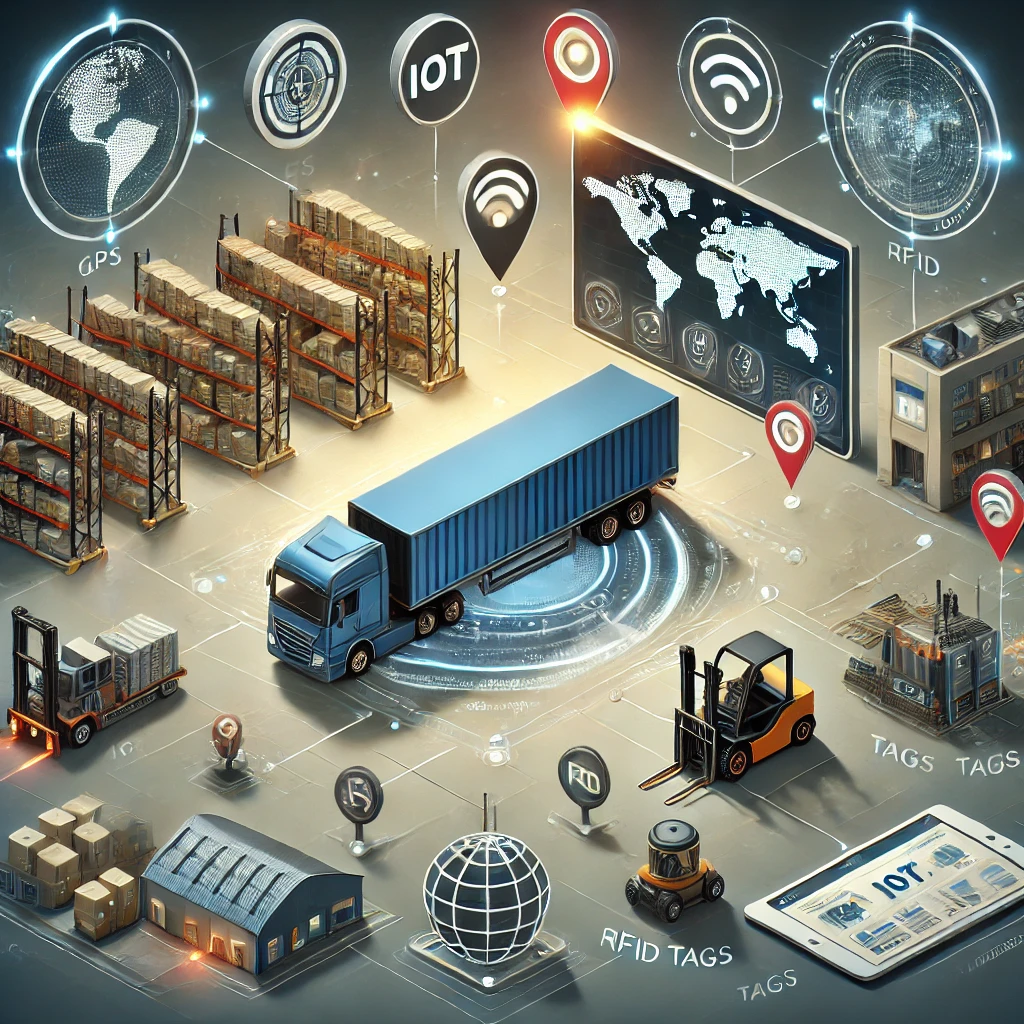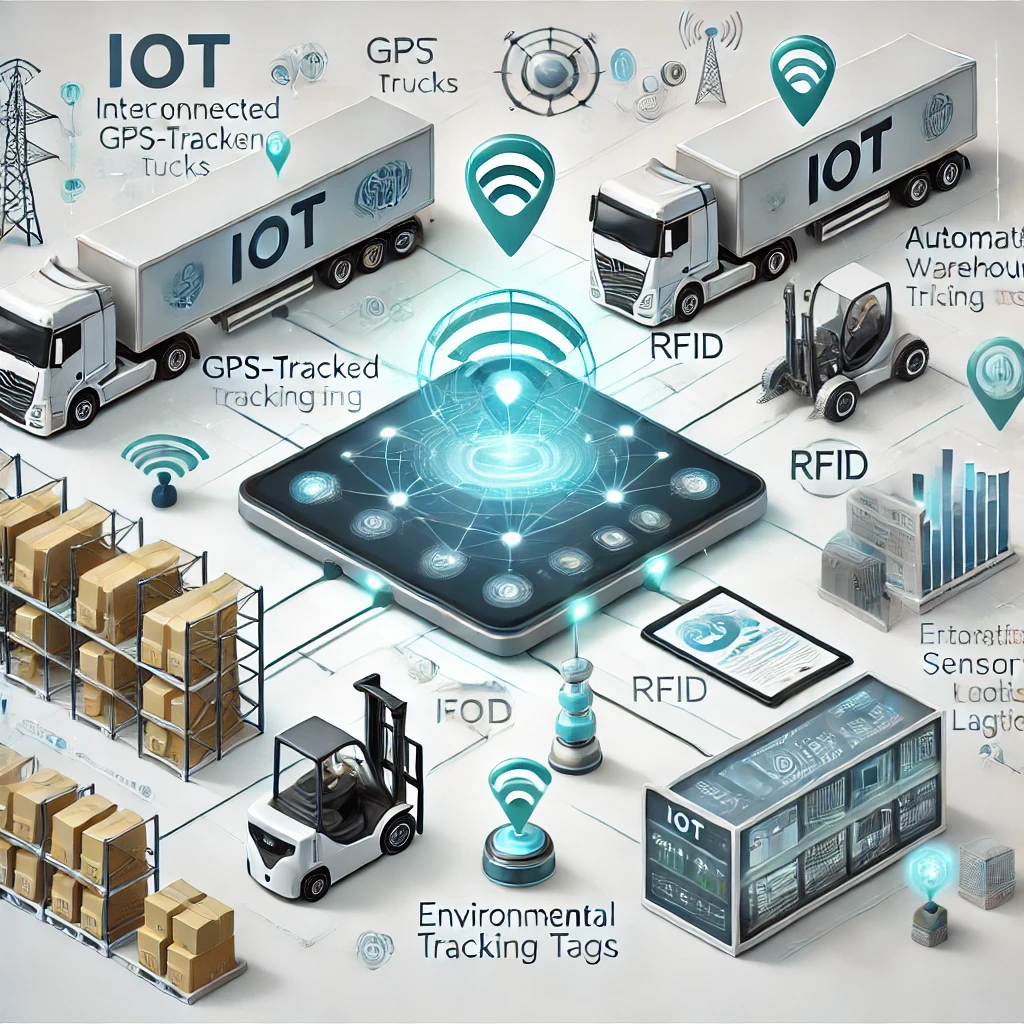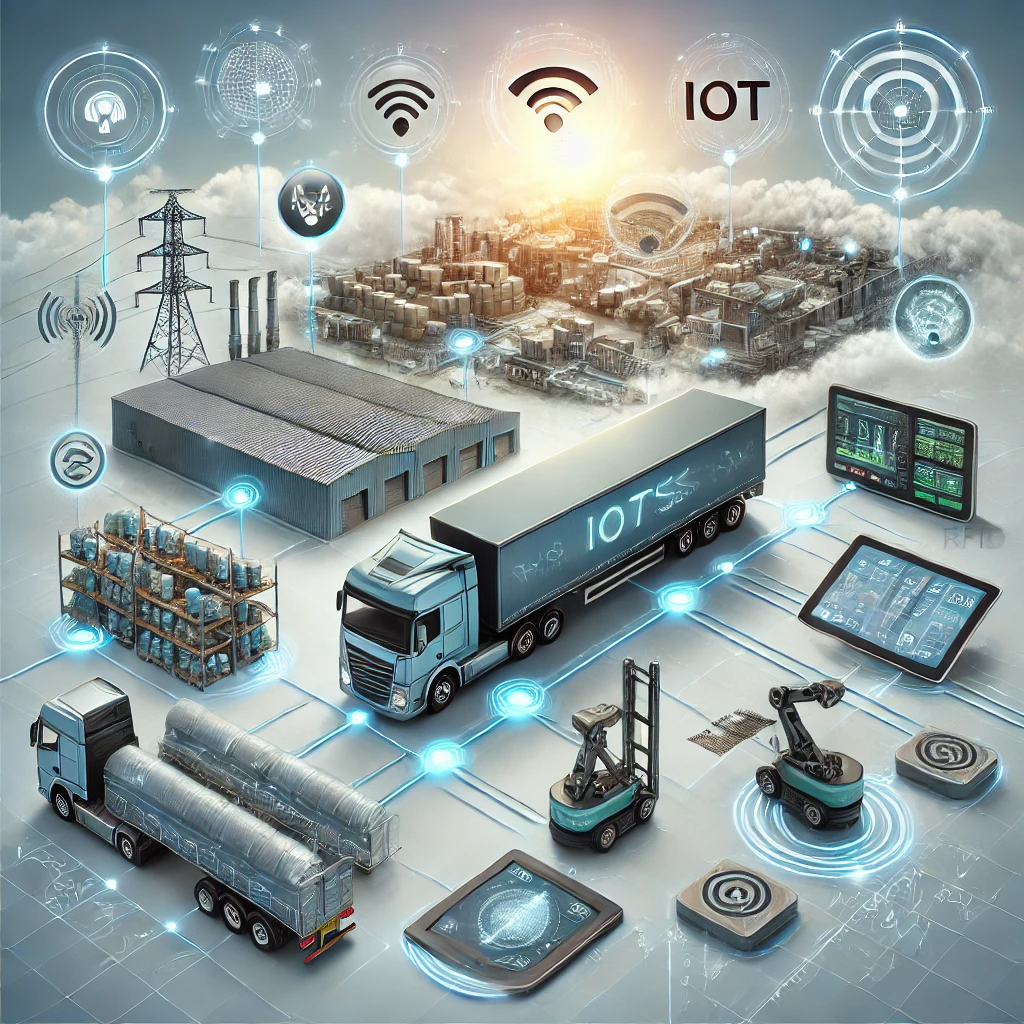Transforming Supply Chains with IoT Logistics Solutions: A Comprehensive Guide

What are IoT Logistics Solutions?
IoT logistics solutions refer to the integration of internet-connected devices and sensors throughout the supply chain to collect, transmit, and analyze data in real-time. Key components and applications include:
- Asset tracking and monitoring
- Fleet management and vehicle telematics
- Warehouse automation and inventory management
- Condition monitoring for sensitive goods
- Predictive maintenance for equipment
- Smart packaging and product authentication
- Environmental monitoring in storage and transit
- Last-mile delivery optimization
By leveraging these IoT technologies, businesses can gain real-time insights into their logistics operations, enabling proactive decision-making and improved efficiency.

Benefits of Implementing IoT Logistics Solutions
- Enhanced Visibility: Gain real-time insights into the location and condition of assets and shipments.
- Improved Efficiency: Optimize routes, reduce idle time, and streamline warehouse operations.
- Cost Reduction: Minimize losses from theft, damage, or spoilage, and optimize resource utilization.
- Better Customer Service: Provide accurate tracking information and ensure timely deliveries.
- Increased Safety: Monitor driver behavior and vehicle conditions to enhance road safety.
- Environmental Impact: Reduce carbon footprint through optimized routes and improved energy management.
- Data-Driven Decision Making: Leverage vast amounts of data for strategic planning and operational improvements.
Key Applications of IoT in Logistics
When considering IoT implementation in logistics, explore the following key applications:
- Real-Time Asset Tracking: GPS and RFID-enabled tracking of vehicles, containers, and individual items.
- Smart Warehousing: IoT-powered inventory management and automated picking systems.
- Connected Fleets: Telematics systems for vehicle performance monitoring and driver behavior analysis.
- Condition Monitoring: Sensors for monitoring temperature, humidity, and shock for sensitive goods.
- Predictive Maintenance: IoT-enabled equipment monitoring to predict and prevent breakdowns.
- Smart Packaging: NFC or RFID tags for product authentication and consumer engagement.
- Environmental Monitoring: Sensors to ensure optimal conditions in warehouses and during transit.
- Last-Mile Optimization: IoT-enabled solutions for efficient and transparent last-mile delivery.
- Supply Chain Visibility: End-to-end tracking and monitoring of goods throughout the supply chain.
- Energy Management: IoT-powered systems for optimizing energy consumption in logistics operations.

Implementing IoT Logistics Solutions: Best Practices
- Define Clear Objectives: Establish specific goals for your IoT implementation, aligning them with overall business objectives.
- Start with a Pilot Project: Begin with a small-scale implementation to demonstrate value and learn from the experience.
- Ensure Robust Connectivity: Implement reliable network infrastructure to support IoT devices and data transmission.
- Prioritize Data Security: Develop strong security protocols to protect sensitive data collected by IoT devices.
- Choose Scalable Solutions: Select IoT platforms and devices that can grow with your business needs.
- Integrate with Existing Systems: Ensure seamless integration of IoT solutions with your current logistics software and processes.
- Invest in Analytics Capabilities: Implement powerful analytics tools to derive actionable insights from IoT data.
- Train Your Team: Provide comprehensive training to staff on using and maintaining IoT systems.
- Consider Interoperability: Choose IoT solutions that can work with a variety of devices and systems for future flexibility.
- Plan for Data Management: Develop strategies for storing, processing, and analyzing large volumes of IoT data.

Emerging Trends in IoT Logistics Solutions
As IoT technology evolves, new trends are shaping its application in logistics:
- 5G networks for faster, more reliable IoT connectivity
- Edge computing for real-time data processing and reduced latency
- AI and machine learning integration for advanced predictive capabilities
- Blockchain for secure and transparent IoT data management
- Autonomous vehicles and drones powered by IoT for deliveries
- Digital twins for advanced simulation and optimization of logistics operations
Staying informed about these trends can help you choose forward-thinking solutions that will serve your business well into the future.
Conclusion
Integrating IoT logistics solutions can transform your supply chain operations, leading to increased visibility, efficiency, and customer satisfaction. By carefully considering your business needs and following best practices for selection and implementation, you can harness the full power of IoT to drive your logistics operations forward in today’s competitive business environment.
For businesses looking to revolutionize their logistics with IoT, Linbis logistics software offers cutting-edge IoT-enabled solutions. With its comprehensive suite of IoT tools, advanced analytics capabilities, and user-friendly interface, Linbis empowers businesses of all sizes to optimize their entire supply chain, from warehouse management to last-mile delivery. Experience the power of IoT-driven logistics and data-driven decision-making with Linbis.
